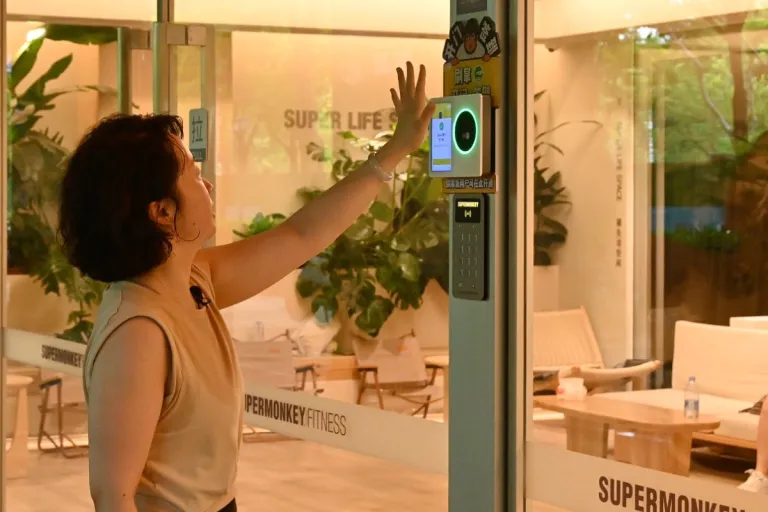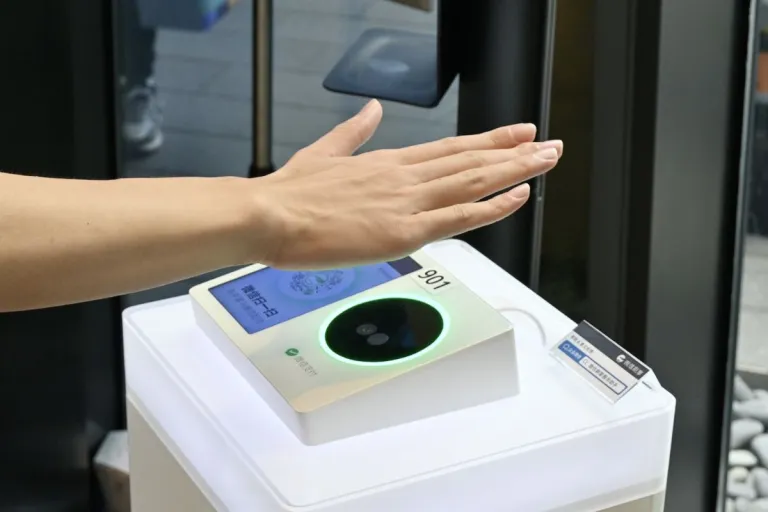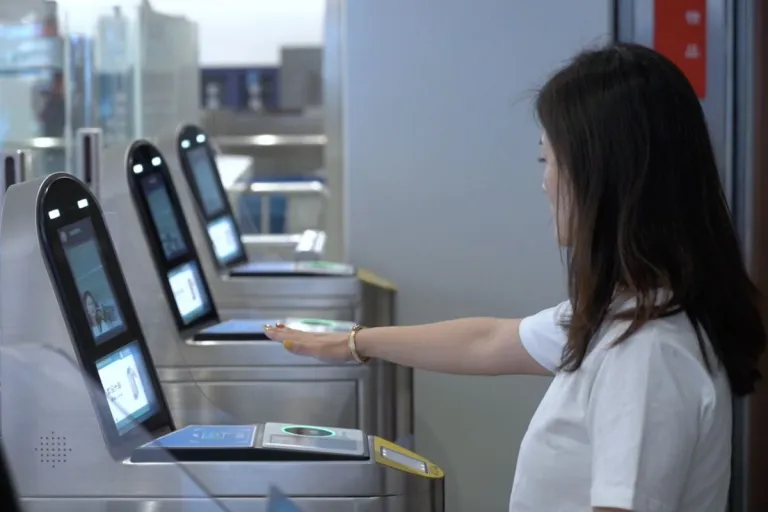Kowloon offers halal‑certified options for every craving Muslim travellers!
Can You Really Pay with Your Hand in China? Here’s How It Works

Imagine walking into a café in China, ordering a bubble tea, and paying — without even touching your phone or wallet. Sounds futuristic, right? Well, it’s already happening. In several Chinese cities, locals can now pay using their hands — thanks to cutting-edge palm recognition technology.
But how does it work? And more importantly, can Muslim travellers take advantage of this innovation during their trip to China? Here’s everything you need to know.
What is palm payment and how does it work?
 Image credit: tencent | Official Website
Image credit: tencent | Official Website
China has always been ahead of the game when it comes to digital payments. First, it was QR codes. Now, it's all about biometric payments, specifically palm vein recognition. This new tech is spearheaded by Chinese tech giants like Tencent (WeChat Pay) and Alibaba (Alipay).
Here’s how the system works:
Palm Registration
At participating stores, metro stations, or kiosks, locals can scan their palm using a high-tech camera. The scanner captures the unique vein pattern under the skin, which acts like a fingerprint.
Account Linking
That biometric data is then securely linked to the user’s WeChat Pay or Alipay account, which is connected to a Chinese bank account.
Hands-Free Payment
The next time they make a purchase, there’s no need to pull out a phone or card. They just hover their hand over the reader — and voilà, the payment is made in seconds.
Where is this available?
 Image credit: Zhao Jian Kang | Canva Pro
Image credit: Zhao Jian Kang | Canva Pro
Palm-pay technology is currently being tested and rolled out in tech-forward cities like:
Beijing
Shanghai
Shenzhen
Hangzhou
You’ll mostly find it in:
Cafés
Convenience stores
Metro stations
High-tech shopping malls
It’s still in its early stages, but the rollout is expanding fast.
Is it Muslim-friendly? Here's what travellers should know
 Image credit: tencent | Official Website
Image credit: tencent | Official Website
For Muslim travellers visiting China, this technology is fascinating — but not yet easily accessible. Here's why:
To use palm payments, you must register with a local digital wallet (Alipay or WeChat Pay), which typically requires:
A Chinese phone number
A Chinese bank account
Currently, foreign cards (like Visa or Mastercard) can be added to Alipay and WeChat Pay for QR-code payments — but not for palm recognition systems yet.
So while you can still enjoy cashless convenience with your phone by scanning QR codes, paying with your palm likely won’t be an option unless you're living in China long-term and have a local bank account.
That said, both Alipay and WeChat Pay do work well for foreigners now for regular mobile payments, including at halal restaurants, street food stalls, and even mosques with donation kiosks in cities like Xi'an and Urumqi.
Bonus tip for Muslim travellers
 Image credit: tencent | Official Website
Image credit: tencent | Official Website
If you’re planning a trip to China, here are a few Muslim-friendly travel tips for going cashless:
Download Alipay or WeChat Pay before your trip and set it up using your foreign bank card — both apps now have special tourist versions with English support.
Look for halal-certified restaurants or use keywords like "清真" (Qīngzhēn) to search on maps or in food delivery apps.
Many mosques in cities like Beijing and Shanghai now accept digital donations, so having your mobile wallet ready is useful even beyond shopping and eating.
Use digital maps to find nearby prayer spaces, halal food spots, and Muslim-friendly markets.
Final thoughts
Yes — paying with your hand is absolutely real in China, and it’s another sign of just how tech-savvy the country is becoming. While this next-gen payment method may not be available for short-term visitors or tourists yet, it’s still amazing to witness.
For Muslim travellers, the key is to embrace China’s digital culture — with a smartphone in hand, a well-prepared digital wallet, and a list of halal-friendly spots, exploring China becomes a lot easier and more exciting.
So no, you might not be able to pay with your hand just yet, but you can still travel light — and cash-free.
Published at
About Author
Aimi Zulkiflee
Subscribe our Newsletter
Get our weekly tips and travel news!
Recommended Articles
15 Best Halal Foods in Kowloon, Hong Kong Top Muslim-Friendly Things to Do at The Newest Antara Genting Highlands It’s located between Peacehaven Campsite and Cradle Rock Genting Highlands, along Jalan Utama Genting Highlands
10 Best Halal-Friendly Destinations in The Philippines for Muslim Travellers Not just Boracay...
10 Best Places for Muslim Travellers to See Tulip Festivals in 2025 Fun Fact: Tulips didn’t actually come from the Netherlands but Türkiye!
Top 10 Popular Muslim-Friendly Destinations to Visit in 2025 Our schedules are packed, buddies!
Latest Articles
Best Places to Stay in Kyoto 2026 : 10 Best Ryokan Hotels with Traditional Japanese Style the ultimate way to feel Kyoto’s old-world charm
Taiwan Cherry Blossom Guide 2026: Top 10 Spots, Forecast, & Hot Springs cherry blossom season is back!
The Ultimate Guide to Nakameguro Cherry Blossom Season: Tokyo’s Iconic Pink Wonderland must-visit when you're in Tokyo during sakura season!
The Ultimate Guide to the Kawazu Cherry Blossom Festival You don’t have to wait that long to see Japan turn into a pink wonderland!
10 Most Instagrammable and Soul-Soothing Resorts in Yogyakarta for Your 2026 Retreat Experience luxury and serenity.

